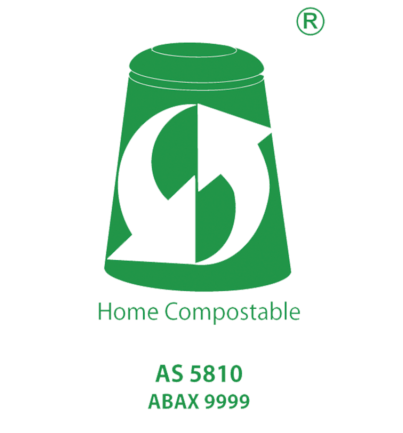Compostable Packaging
Compostable Packaging
Shipping Assurance
Protect your shipment from damage, loss or theft.
Couldn't load pickup availability

Compostable Packaging
What is Compostable Packaging?
Plastic packaging materials like parcels, stickers, and polythene bags account for 42% of all plastic produced worldwide.
Unfortunately, it has a very short usability lifetime (typically around 6 months or less). This is where businesses can take advantage of alternative solutions, like compostable packaging.
In fact, compostable packaging has the potential to extend the end-of-life performance of packaging materials.
Compostable packaging is a form of packaging made from various natural materials such as sugar cane, corn starch, potato starch, and wood pulp.
It is a popular sustainable packaging option because microorganisms can break down compostable materials into compost, a valuable fertilizer that enriches plants and soil. This helps reduce a large portion of plastic pollution by driving it away from waterways and landfills.
With home composting, the decomposition of organic waste into compost may take up to 180 days, but industrial composting facilities can decrease this time to 3 months.
Compostable vs. Biodegradable
Both compostable and biodegradable packaging break down into elements, but they differ in what they contribute to the environment. Natural microbes turn compostable packaging into valuable fertilizer that improves soil quality. In contrast, when biodegradable packaging is broken down into smaller pieces, the resulting by-products may contaminate soil if they are not processed correctly.
Compostable products generally decompose more quickly than biodegradable products. For example, wood-based compostable packaging takes between 45 to 60 days to decompose, whereas compostable plastics take up to 180 days. On the other hand, biodegradable packaging takes between 3 to 6 months to fully decompose.
Compostable and biodegradable packaging are beneficial in terms of reducing pollution, however, compostable packaging also helps preserve the ecosystem.
Why Choosing Compostable Packaging?
✅ Water resistance: Compostable bags are water resistant, making them a great packaging option as they protect items from moisture.
✅ Reduced carbon footprint: Compostable packaging production requires less energy than traditional materials like plastics.
* Reduce plastic waste in landfills: Organic waste in landfills produces methane, a potent greenhouse gas. Composting significantly reduces methane emissions that affect climate change.
✅ Positive effects on soil and ecosystems: Composting reduces the need for chemical fertilizers, improving soil quality and promoting higher yields of agricultural crops.


